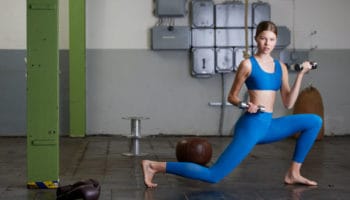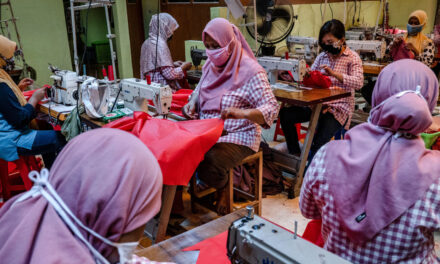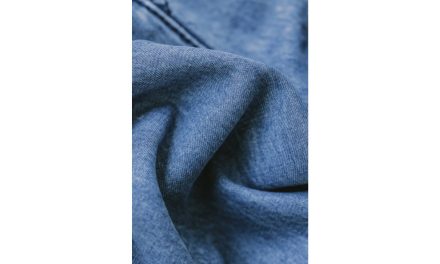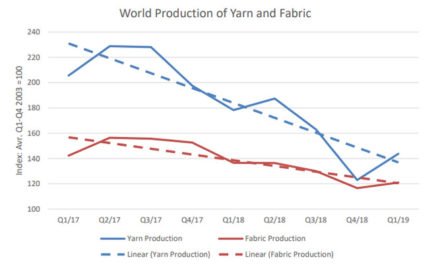 Karl Mayer displayed a wide range of functional, warp-knitted textiles, garments and lingerie at the recent ISPO sports show in Munich, along with live demonstrations of the ECG Shirt for performance monitoring, made with the company’s Textile Circuit technology and now equipped with upgraded sensors for added wear comfort.
Karl Mayer displayed a wide range of functional, warp-knitted textiles, garments and lingerie at the recent ISPO sports show in Munich, along with live demonstrations of the ECG Shirt for performance monitoring, made with the company’s Textile Circuit technology and now equipped with upgraded sensors for added wear comfort.
“All of the electronically conductive materials are integrated into the textile in a single-step process and can be very precisely positioned anywhere within the structure,” explained Michael Kieren, Product Manager for Karl Mayer’s Warp Knitting business unit at the show.“The flexibility of the conductive surfaces and the bi-elasticity of the fabrics deliver very good freedom of movement, which is what consumers want, so it just feels like wearing a normal shirt.” Other smart textiles shown included a textile-based inductive charging pad, a switch controller and an RFID heating fabric manufactured with polyamide and silver. Also displayed were fabric samples printed with silicone, made on a prototype jacquard machine with an integrated printing head.
 “The options for what we actually print with are wideranging and we’re exploring this not just for adding decorative effects or brand names, but also as a method of reducing the complexity of making reinforcements with tailored structures,” Kieren said. “In the next few years we will have a commercial machine with a printing head, but at the moment we’re just at the prototype stage.”
“The options for what we actually print with are wideranging and we’re exploring this not just for adding decorative effects or brand names, but also as a method of reducing the complexity of making reinforcements with tailored structures,” Kieren said. “In the next few years we will have a commercial machine with a printing head, but at the moment we’re just at the prototype stage.”
True warp-knitted 3D fabrics are meanwhile possible with double-bar raschel technology using a technique the company calls 4D Knit, with which voluminous ready-made panels such as entire back components for use in mid-layer jackets can be produced, as well as sculptured effects and combinations of 3D panels and breathable openings. Fabrics can be produced with diverse malleable patterning on both sides and the 3D motives can be completely variable in shape, positioning and height – small and flat reliefs or deep and bulky forms with cushioning. Similarly, for the footwear industry 4D Knit is being used to produce shoe components with variable thicknesses, comparable to spacer fabrics but less stiff and much more flexible. Other warp-knitted textiles especially developed to meet the requirements of the sports sector displayed at ISPO included lightweight, stable mesh linings, four-way-stretch fabrics with breathability and compressions and a variety of tricot fabrics with decorative, striped patterns.






















